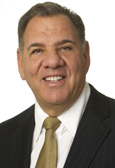Among all water-based recreation activities that Floridians participate in year-round, parasailing has proven to be the most dangerous. By the very nature of parasailing, accidents invariably result in either catastrophic injuries or death. Leesfield & Partners with other key advocates have been at the forefront of promoting the passage of laws and regulations to increase parasailing safety. After numerous articles and blogs, answers have finally come with the recent passage of the White-Miskell Act, and, now, this week’s release from the NTSB’s Special Investigation Report: Parasailing Safety.
 Promoting parasail safety has become a priority of mine since 2007 while representing the family of two teenage-sisters, injured and killed during a flawed parasail ride. This was national news and rightly so. Witness videos and photos showed the boat towing the parasail as it was pushed ashore due to strong currents and very high winds, and on the end of the towing rope, you could see the two sisters in the parasail, dangling dangerously high up in the air, at the mercy of the elements. Seconds later, the towing rope snapped and both girls were catapulted against several buildings, dragged across rooftops, and falling lifeless into palm trees.
Promoting parasail safety has become a priority of mine since 2007 while representing the family of two teenage-sisters, injured and killed during a flawed parasail ride. This was national news and rightly so. Witness videos and photos showed the boat towing the parasail as it was pushed ashore due to strong currents and very high winds, and on the end of the towing rope, you could see the two sisters in the parasail, dangling dangerously high up in the air, at the mercy of the elements. Seconds later, the towing rope snapped and both girls were catapulted against several buildings, dragged across rooftops, and falling lifeless into palm trees.
After speaking with members of the Coast Guard, it became clear that human error was the common denominator in almost every single parasailing accident. Faulty equipment, inadequate weather-tracking equipment, operator error, or lack of training are always contributing factors of parasailing tragedies. There was no protection from the State of Florida nor did the Federal Government have any regulation in place to safeguard the public from irresponsible operators at the time. For years, the parasailing industry was a modern version of the wild wild west: Buy a boat, a rope, a chute, you are in the parasailing business! Things had to change.
In 2013, about 325 vessels were conducting parasailing operations in the United States and its territories, and about one-third of the overall activity takes place in Florida. The NTSB became involved when the Coast Guard joined in on the investigation of several parasailing fatalities and kept a very close eye to incidents occurring in the State of Florida. Among the cases the NTSB monitored was our case in 2011 occurring in St. Thomas, US Virgin Islands. A 60-year-old woman died and her daughter was seriously injured when the towline parted in high winds, and the women landed hard in the water. The vessel master had hoisted the women into the air even though the weather conditions were deteriorating and the winds increasing. Leesfield & Partners recommended remedial steps from our now growing parasail experience.
Based on our success in passing laws protecting the public from carbon monoxide poisoning at hotels, we strongly encouraged the Florida Legislature to act again for public safety. Two years after that hotel incident, the State of Florida adopted a new set of laws making carbon monoxide detectors mandatory for new buildings and, now, we have parasailing protection as well.
After seven years and three failed attempts at passing regulations later, Governor Scott finally signed the White-Miskell Act this June, which will impose and implement parasail safety regulations for the first time in Florida. In particular, the law requires that operators keep a weather log, and install adequate weather equipment to receive weather updates and weather warnings in case of rapidly forming storms which make parasailing unsafe.
While the new law is a major victory for Floridians and millions of tourists who travel to Florida every year, it is by no means a perfect solution. These regulations are a stepping stone to increase parasail safety, but much more needs to be added. That is why we will remain at the side of all the safety advocates and push for legislation requiring minimum standard equipments that parasail operators must use in order to offer rides in Florida, as well as a minimum level of experience and professional competence for those who operate parasailing vessels.
As Chair of the Leading National Resort Tort Litigation Group, the latest report and recommendations for stricter requirements to be imposed upon parasailing operators by the NTSB are much welcome and we must all continue to advocate for greater parasailing safety. The goal is simple: Safer parasailing experiences for consumers and to eliminate human errors associated with parasailing activities.
 Florida Injury Lawyer Blawg
Florida Injury Lawyer Blawg


